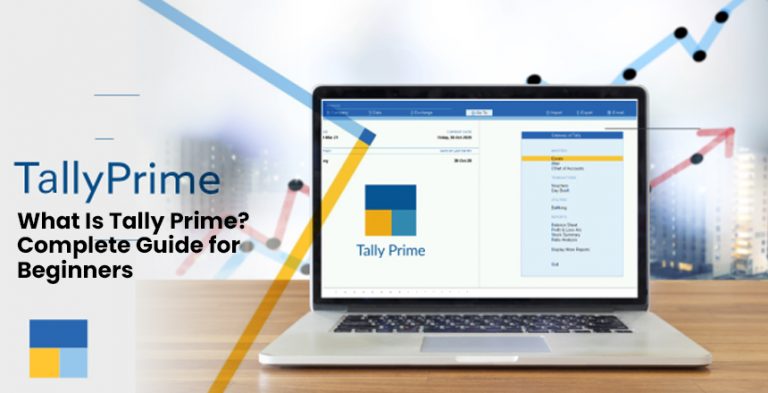As a new company, you would want to keep ahead of the game and find efficiency in everything you can including accounting. The classical bookkeeping procedures consume too much time, are subject to error, and are in many cases not conducive to any business which is on a high speed gear. This is where digital accounting comes in. As an entrepreneur or a founder of a startup, it is necessary to be familiar with the fundamentals of digital accounting designed to help you navigate funds efficiently and make the right choices and remain compliant. This beginners guide divides the idea and advantages of digital accounting and how new businesses could leverage it.
What is Digital Accounting?
Digital accounting uses cloud-based programs and digital tools to keep financial records, make transactions and produce reports. It does not require manual ledger entries, spreadsheets, and paperwork. The entire accounting process can be completed online, both in real-time, including billing, payroll, tax, filing, and analytics. It automates, makes transparent, and gives control to startups, which are vital when growing a business.
The Reason Startups should get into the habit of Digital Accounting
In the case of startups, each rupee and each hour matters. The digital accounting assists founders:
- Reduce the time used in invoicing, bank reconciliation and reporting of finances.
- Make it more accurate by eliminating human data entries.
- Cloud-based systems allow you to access data when you are on the road and are perfect on remote/Hybrid teams.
- Obtain in real-time cash flow, profitability reports, and expenses.
- Make tax compliances by integrating GST and TDS in most tools.
An early adoption of digital accounting will result in reduced headaches later when the business expands and requires more robust finance in place.
Important Specifications on Digital Accounting Software
The following are some of the features to look out when deciding to use digital accounting tools in your startup:
- Open dashboard: Makes tasks of managing finances easy even to those who are not accountants.
- GST-compliance: Indian startups need it in order to stay on such matters as returns and filings.
- Invoicing & billing: Personalised invoices and automatic payment reminders.
- Bank integration: Automatically integrates the transactions with business accounts.
- Multi-use access: Prevents access by individuals and hackers.
- Reports & analytics: Creates reports including balance sheets, P&L, cash flow and others.
We can find such features in popular tools, such as TallyPrime, Zoho Books, QuickBooks, Vyapar, and Busy Accounting, and such tools have scalable pricing when it comes to startups.
Advantages of Digital Accounting Among New Startups
Utilization of digital accounting early is a competitive advantage to startups:
- Implementation of better choices: The information allows goal setting when budgeting and resources to allocate as well as profitability.
- Time saving: Routine tasks will become automated allowing to save time in business development activities.
- Professionalism: Branded, cleaned invoices and fast tracking of financial issues enhance credibility to clients and investors.
- Less cumbersome audit: Records stored on digitally make an audit and financial due diligence process easy to potential investors.
The digital systems also eliminate the complete reliance of using an individual accountant thus start-ups have more control over their own finances.
Shared Problems and the Ways to Get Rid of Them
Other startups may be afraid to move to digital accounting because of complexity or price. That is how to get rid of them:
- Incompetence: Select easy to use platforms and do small online lessons to learn.
- Budget issues: Get a free or low cost version and then make an upgrade when business grows.
- Data integrity concerns: Employ the services of a good cloud provider that offers a high encryption and backup system.
- The vast majority of digital tools are created on a novice level, and customer service and education opportunities are quite accessible.
The Connection between Digital Accounting and other Startup Tools
To make the operations more simplified, online accounting tools can be interlinked with other systems such as:
- Razorpay, Paytm, and other payment sites to facilitate payments.
- Inventory solutions of synchronizing products sales and inventory.
- Automated payroll solutions calculating salary and being compliant.
- CRM applications to integrate customer records to billing and finance.
Such an ecosystem results in an integrated digital process that saves time and increases workflows.
My last consideration is Future-Proofing your startup using digital accounting.
Digital accounting is not simply a trend, but it is a must-have in contemporary startups. It will enable entrepreneurs to become independent in their financial management, make more intelligent decisions and remain maneuverable within a competitive market. Startups, by using digital tools at the earliest, ensure their scalable growth, compliance, and monetary transparency.
Are you a founder who wants to streamline accountancy, make it more accurate and pay less attention to spreadsheets and more to innovation? You can not find a smarter step to make than going digital.








